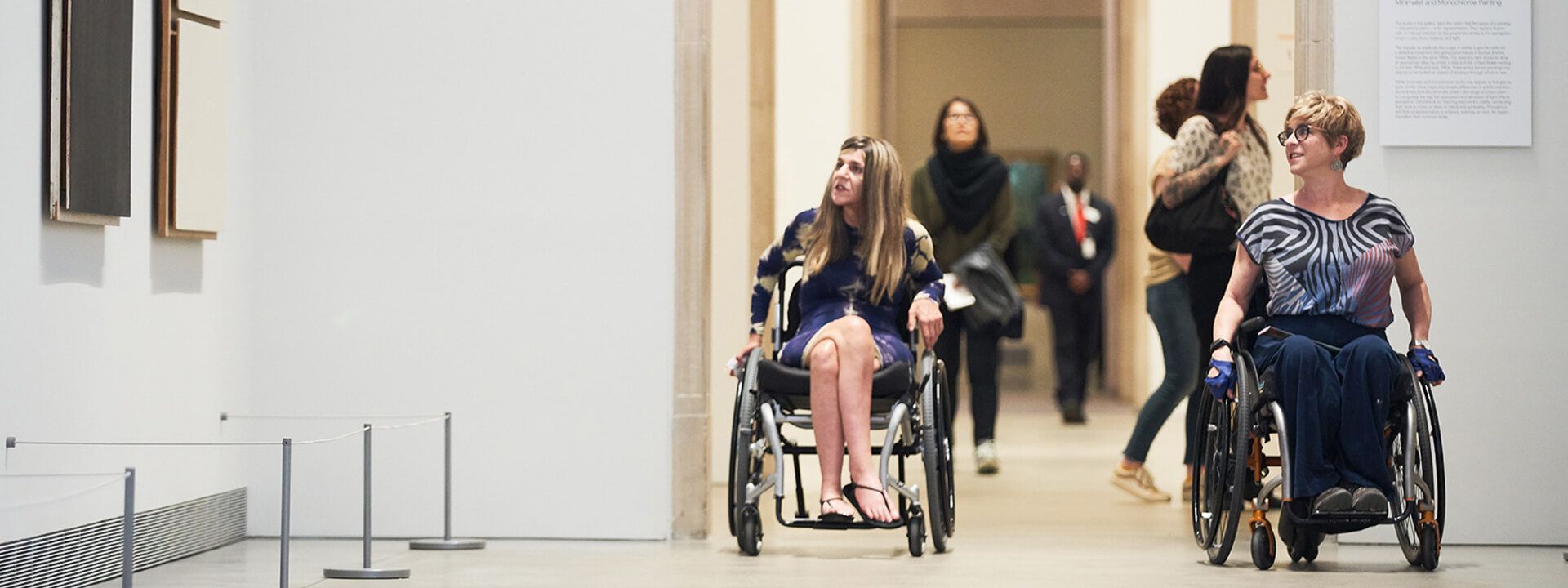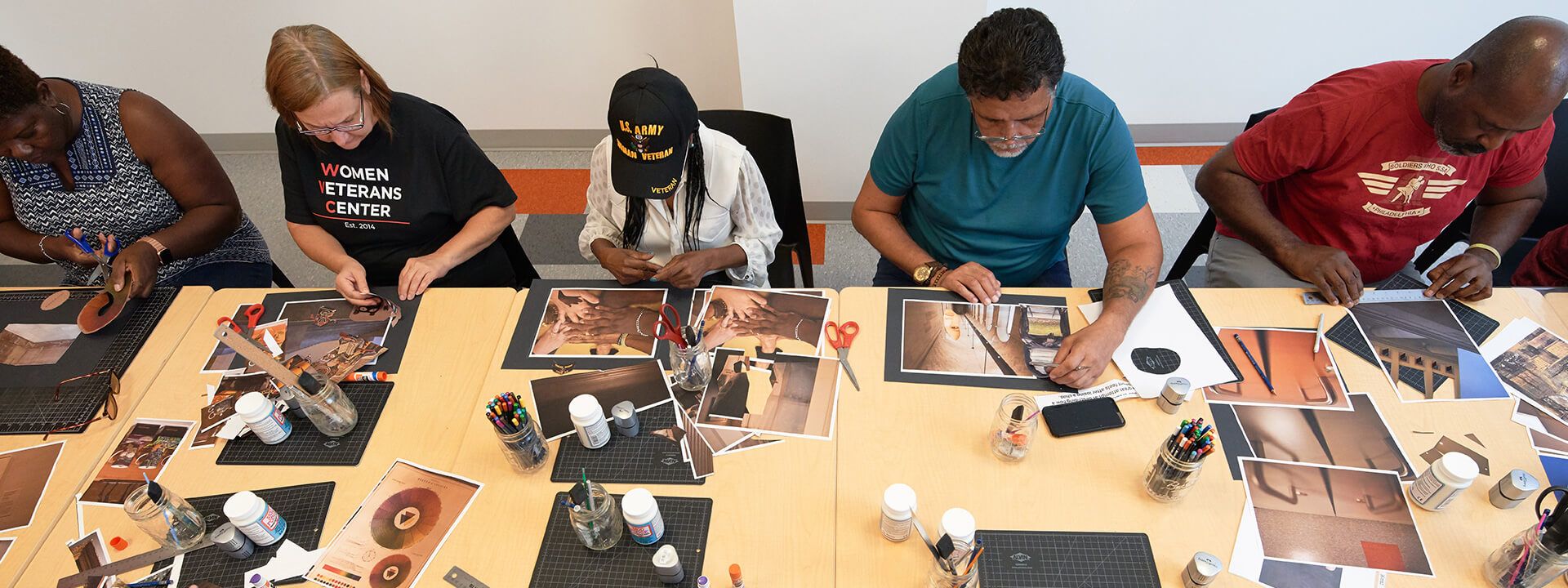Museum Map
Use our color-coded map to help find your way through the main building.
Free Wi-Fi
Enjoy free Wi-Fi in the main building, the Perelman Building, and the Rodin Museum.
Personal Attendants
Personal attendants of visitors with disabilities are admitted free of charge (limited to one attendant per visitor).
Service Dogs
Service dogs are welcome.
Visitors Who Are Blind or Partially Sighted
Large-Print Museum Materials
For large-print materials, email us three weeks before your visit at AccessProg@philamuseum.org.
Audio Tour
Our audio tour offers a deeper look at some of the museum’s greatest hits. It is free for visitors who are blind or partially sighted. Request it at any Visitor Services Desk, located near all entrances.
Visitors with Limited Mobility
Accessible Parking
Accessible parking is available in our garage across from the main building. Spaces are limited. Drop-off is available by the ramps at the West Entrance and at the curb cut just before the North Entrance on either side of Anne d’Harnoncourt Drive.
Bus Access
Visit SEPTA’s website for information on bus service to the museum.
Barrier-Free Entry
Our West and North Entrances, Café, and Store are barrier free.
Canes
Free adjustable-height canes with rubber tips are available inside each entrance, first-come, first-served.
Wheelchairs & Mobility Devices
Free wheelchairs are available inside each entrance, first-come, first-served.
Manual and electric wheelchairs are welcome in all areas of the museum. Nonmotorized mobility devices such as the Alinker and single-seat and knee scooters (manual and electric) are permitted as are walkers, crutches, canes, braces, and other similar manual devices.
To ensure the safety of visitors and artwork, other types of mobility devices—including tricycles, standing scooters, carts, hoverboards, and gyroscopic devices—are not permitted. If your mobility device is not permitted, we will provide a free manual wheelchair (first-come, first-served) and will store your electric or battery-operated device in a nonpublic area during your visit. We are unable to store devices with liquid fuel of any kind.
Elevators & Seating
All floors are accessible by elevator. There is seating in almost every third gallery.
Restrooms
All restrooms are accessible and have baby-changing stations. All-gender restrooms are available near Stir restaurant (first floor), below the West Entrance (lower level), and near the North Entrance (ground floor).
Water Fountains
There are accessible water fountains near the restaurant Stir (first floor) and near American Art gallery 209 (second floor).
Visitors Who Are Deaf or with Hearing Loss
Sign Language Interpreters
Request a free Sign Language interpreter two weeks before your visit by emailing us at AccessProg@philamuseum.org.
Assistive Listening Devices
Free FM assistive listening devices with neck loops are available. If you go on a gallery tour, ask your guide for one.
Scripts
Printed transcripts of audio tours and other print materials are available.
Closed Captioning
All museum-produced videos presented in the galleries feature closed captioning.
Visitors with Children on the Autism Spectrum
PMA for All App
The PMA for All app is designed to help families, especially those with children on the autism spectrum, prepare for a day at the museum. Available for free download on the Apple App Store and Google Play.


